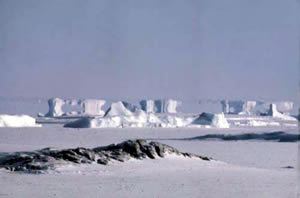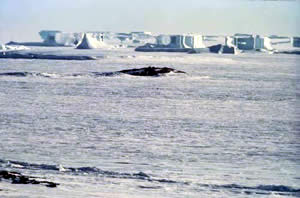| In Antarctica, the temperature of the ground or sea surface drops sharply and creates a large temperature gap between the surface and the upper air. This causes uneven density of air layers, for which light waves are refracted. This is how a mirage makes an iceberg appear to be floating or taller than it really is. Mirages often appear on a clear day since radiation cooling helps to lower the surface temperature and lights are refracted more easily through air layers with different density. |

